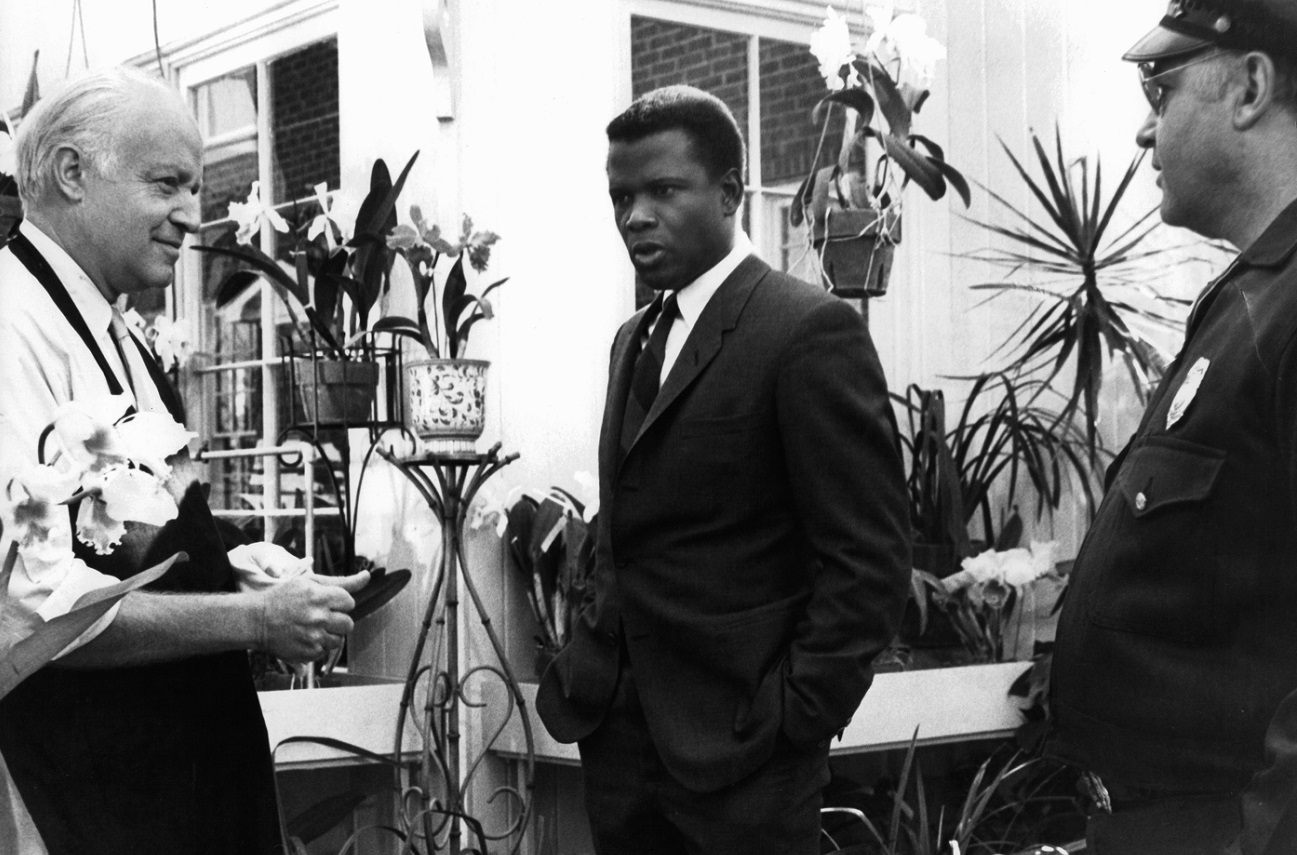‘In the Heat of the Night’: Why Sidney Poitier Insisted His Character Return a White Man’s Slap
If you’re looking for a turning point in how U.S. race relations were depicted in films, don’t gaze past In the Heat of the Night. In the ’67 Norman Jewison picture, Sidney Poitier plays Virgil Tibbs, a Philadelphia detective visiting his mother in the South. On his way back to Philly, Tibbs gets arrested, well, because he’s Black. Then the plot heats up.
Poitier isn’t just any Philly cop; he’s a top detective in the homicide division. And the backward cops of Sparta, Mississippi, need his help solving the murder they arrested him for. Along the way, Tibbs ruffles the feathers of Eric Endicott (Larry Gates), the richest man in Sparta, who reacts by slapping Tibbs across the face.
So how does Tibbs — a Northerner visiting a place where Blacks were lynched — respond to that offense? In In the Heat of the Night, he smacks Endicott right back. It’s an electric screen moment, and one of the reasons Poitier considered the film “revolutionary.” Later, Poitier said he wouldn’t have made the film unless Tibbs smacked Endicott back.
Sidney Poitier believed ‘In the Heat of the Night’ would ring false without Virgil Tibbs slapping Endicott

In an interview for an AFI 100 presentation (via the Criterion Collection release of In the Heat of the Night), Poitier looked back on making the landmark film. During the development process, he gave producer Walter Mirisch and scriptwriter Stirling Silliphant feedback on various aspects of the story.
“There were some flaws in the script that had to be corrected,” Poitier said. “I felt certain things were not appropriate in terms of the reality of the times. They acknowledged what I had to say and they made certain changes.” That included the pivotal scene that features Tibbs standing his ground in a scenario in which he risked death.
“I said to [Mirisch], ‘In my life, whether I’m a detective or not, and I don’t care where I am, if such a thing happened to me, the likelihood is I would respond,'” Poiter said in the interview. “‘And my response would certainly not be to absorb it.'” Indeed, Poitier considered Tibbs’ only possible response to be slapping Endicott back.
“Now that was not designed to be a big social comment,” Poitier continued. “It was designed on the basis of a man’s humanity. If it is offended in that way, [he’d respond in kind].” Producers, already nervous about Southern theaters banning the film, worried about including the Tibbs slap. Yet if they didn’t, Poitier said he’d have walked.
Some reports say the Tibbs slap appeared in the original script
According to some accounts, Silliphant wrote the slap into the original In the Heat of the Night script. That would suggest Poitier later took credit for something the writer already planned to do. However, Mirisch recalled Poitier offering his feedback during the writing process.
“As the script progressed, I arranged for Sidney, [Silliphant], and me to meet whenever advisable,” Mirisch wrote in his 2008 memoir. “We discussed current events, the civil rights movement, and the complexities of our characters and story.”
That certainly seems to match Poitier’s account. Either way, the slap didn’t appear in the original novel by John Ball. And if Poitier said he wouldn’t have made the film without it, you believe him. The actor took more than his share of chances making the picture. He hardly needed to exaggerate his input.


